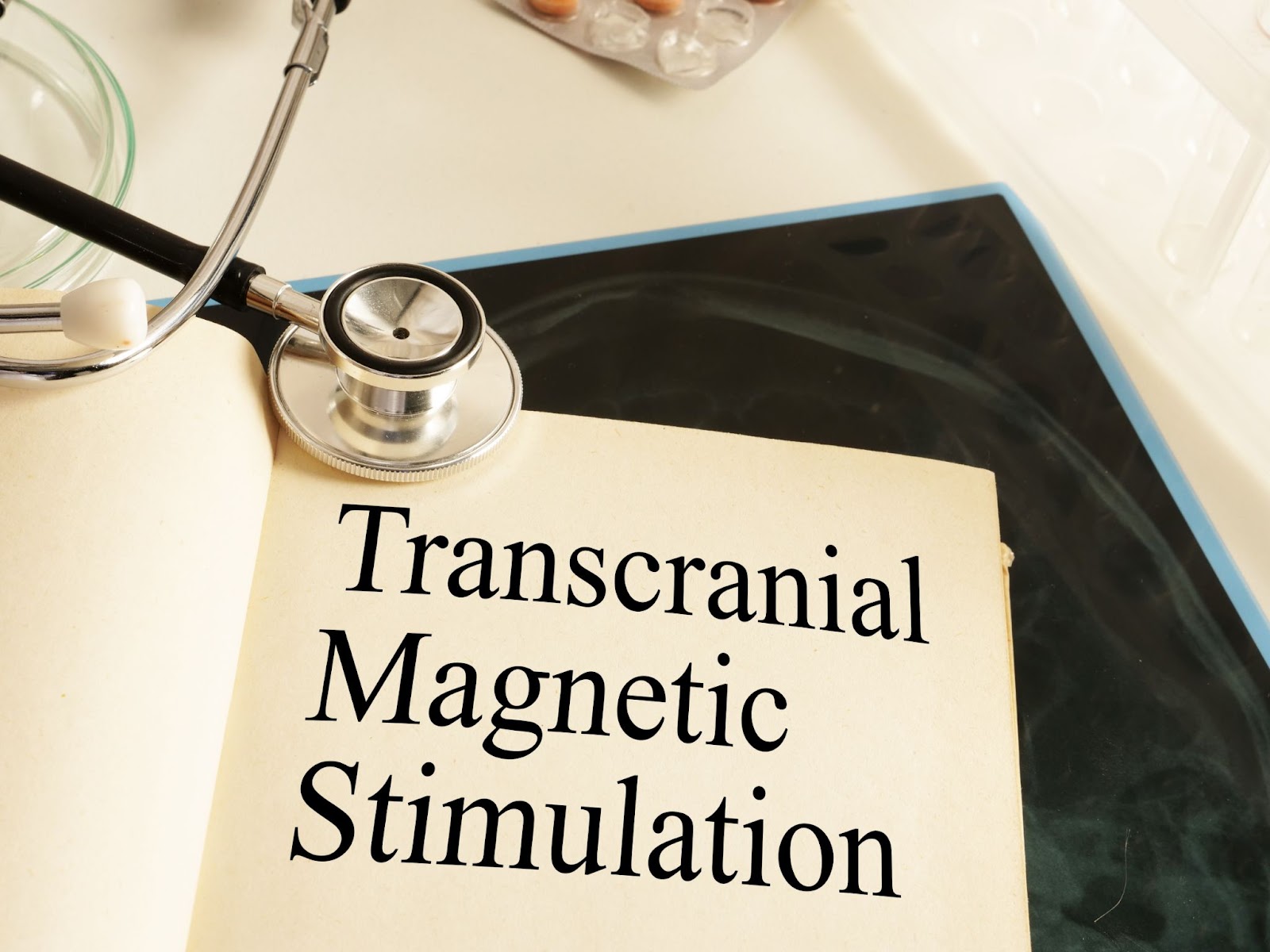I’ve been diving deep into something that I think could really make a difference for those battling OCD, and I had to share it with you. You know how tough OCD can be, right? It’s not merely about being a bit particular about things; it’s a serious struggle that can take over someone’s life.
Well, there’s this treatment called TMS, or Transcranial Magnetic Stimulation, that’s been making waves in mental health care, and it’s showing some promising results for OCD.
TMS is a non-invasive procedure where magnetic fields stimulate nerve cells in the brain. It’s been around for a while and has helped a lot of people with depression. Now, there’s growing evidence that it could help with OCD too.
So, in this chat, let’s explore TMS, its science, and why it might be a game-changer for those who feel stuck with traditional OCD treatments. I think you’ll find it fascinating!
What is OCD?
Today, I want to discuss Obsessive-Compulsive Disorder, or simply OCD. I know we’ve spoken about it in passing before, but I thought it would be cool to explore it in more detail because there’s something amazing I want to share with you — how Transcranial Magnetic Stimulation (TMS) can help people with OCD.
Now, imagine this – you’re walking down the street, and suddenly, an intrusive thought pops into your mind. Something like “What if I left the stove on?” The thought grips your brain and refuses to let go. It’s like a broken record, playing over and over again, causing unbearable anxiety.
In an attempt to alleviate the anxiety, you feel an intense urge to go back home and check the stove, even though you know you turned it off. This is a mere glimpse into the world of OCD.
So, what exactly is OCD? Well, it’s a mental health disorder characterized by unwanted, intrusive thoughts (often called obsessions) and repetitive behaviors (called compulsions).
These obsessions typically cause significant distress and interfere with daily life. While OCD manifests in various ways, some common obsessions and compulsions revolve around cleanliness, symmetry, and even doubt.
Individuals with OCD often engage in rituals or compulsions to temporarily ease the anxiety created by their obsessions. These rituals may involve excessive handwashing, counting, checking, or rearranging objects. It’s important to note that these behaviors are not pleasurable and are instead performed to gain relief from obsessions.
In short, OCD is a very unpleasant mental health condition to live with.

What is TMS therapy, and how can it help?
Okay, so what exactly is TMS therapy? Well, it’s a non-invasive procedure that uses magnetic fields to stimulate specific areas of the brain. In simpler terms, it’s like giving your brain a gentle massage with magnets. Trust me, it’s not as strange as it sounds!
Now, TMS therapy has been around for a while, primarily used to treat depression. However, recent studies have shown that it can also be quite effective in managing OCD symptoms. Isn’t that amazing? It’s like a double whammy of goodness!
TMS therapy targets specific regions of the brain involved in OCD, like the anterior cingulate cortex and the dorsolateral prefrontal cortex. By stimulating these areas with magnetic pulses, TMS helps modulate the brain circuits responsible for OCD symptoms. In other words, it helps restore balance to the brain’s functioning.
Now, you might be wondering if TMS therapy is safe. I totally get it! No one wants to mess around with their brain. Well, the good news is that TMS therapy is considered to be quite safe and well-tolerated.
In fact, it has been approved by the U.S. Food and Drug Administration (FDA) for the treatment of depression. Side effects are generally mild and temporary, such as scalp discomfort or headache during or after the sessions.
The treatment itself typically involves several sessions over a few weeks. During each session, a technician places a magnetic coil against your scalp, targeting the specific brain regions we talked about earlier. You don’t need any anesthesia, so no worries about feeling groggy afterward. And the best part? You can resume your daily activities immediately after the session.
Now, buddy, I can see the question forming in your mind. Does it actually work? Well, research suggests that TMS therapy can indeed have a positive impact on reducing OCD symptoms. It’s like a superhero ally that enhances the effectiveness of other treatments.
Of course, it’s important to remember that TMS therapy might not be a one-size-fits-all solution for everyone with OCD. It’s essential to consult with a qualified healthcare professional who can evaluate your specific situation and determine if TMS therapy is a suitable option for you.
Integrating TMS therapy into your OCD treatment plan
When it comes to tackling OCD, there’s no one-size-fits-all solution. That’s why a holistic approach, one that considers all facets of your health and lifestyle, is key. And this is where TMS therapy comes into the picture — not as a standalone cure but as a pivotal piece of a larger, more comprehensive treatment puzzle.
Imagine TMS as one of the tools in your toolbox. Just like a carpenter wouldn’t rely solely on a hammer to build a house, TMS therapy is most effective when used in conjunction with other treatments.

Cognitive-behavioral therapy (CBT), for example, is a cornerstone in managing OCD, helping to retrain your brain and change the patterns of thinking and behavior that feed the cycle of obsessions and compulsions.
Medications can also play a crucial role in balancing the brain’s chemistry to reduce symptoms. Lifestyle changes — like stress management techniques, regular exercise, and a balanced diet — can further bolster mental health.
But how do you weave TMS into this tapestry of treatments? It starts with a conversation with your healthcare provider. Together, you can craft a treatment plan that’s as unique as your fingerprints, one that combines TMS with other therapies to target your OCD from multiple angles.
This personalized plan isn’t static; it’s a living document that evolves as you do, adapting to your changing needs and circumstances to ensure the best possible outcomes.
The promise of TMS therapy, when integrated into a well-rounded treatment strategy, is not merely about managing symptoms; it’s about unlocking a level of well-being that might have felt out of reach. It’s about crafting a life where OCD doesn’t hold the reins, and you’re free to pursue your passions and enjoy your relationships to their fullest.
Considerations and candidacy for TMS therapy
Now, let’s get into some crucial points to consider when contemplating TMS therapy for OCD.
Diagnosis and treatment resistance
Before considering TMS therapy, it’s essential to ensure a proper diagnosis of OCD. TMS is typically considered when traditional treatment methods, such as medication and therapy, have not provided satisfactory results. Your doctor will evaluate your medical history and assess the severity and resistance of your OCD symptoms to determine if TMS therapy is a suitable option for you.
Safety measures
Like any medical procedure, TMS therapy has safety measures in place to ensure its effectiveness and minimize potential risks. Your doctor will evaluate your medical history and consider any pre-existing conditions or medications you may be taking.
Certain factors, such as the presence of metallic implants or devices in your head, such as cochlear implants or aneurysm clips, may impact your candidacy for TMS therapy. Additionally, TMS therapy is generally not recommended for individuals with a history of epilepsy or seizures or for anyone who is currently pregnant.
Time commitment
TMS therapy typically involves several sessions spread over a few weeks, depending on the individual and their response to treatment. The sessions are usually conducted on an outpatient basis, meaning you can go home right after each session.
However, it’s important to keep in mind that each session can last anywhere from 20 to 60 minutes, depending on the targeted brain region. So, it’s essential to factor in the time commitment when considering TMS therapy for OCD.
Potential side effects
As with any medical intervention, TMS therapy for OCD may have some potential side effects, although they are generally minimal and temporary. The most common side effect reported is mild scalp discomfort or headache during or after the session. However, these symptoms usually subside quickly.
Rest assured that your doctor will closely monitor you throughout the treatment to ensure your safety and comfort.
Insurance coverage
Lastly, it’s worth mentioning that insurance coverage for TMS therapy varies and may depend on a few factors, including your location and insurance provider. Coverage may also depend on your specific diagnosis and treatment history. It’s crucial to check with your insurance company about their policies regarding TMS therapy for OCD.
Your doctor and their team can also provide guidance and support in navigating the insurance landscape, ensuring you have all the information you need to make an informed decision.
Remember, my friend, that TMS therapy is only one piece of the puzzle when it comes to managing OCD. It’s often recommended as an adjunct treatment to traditional therapies, such as cognitive-behavioral therapy (CBT), which focuses on changing thought patterns and behaviors associated with OCD.
Your doctor will carefully consider your unique needs, medical history, and treatment goals before determining if TMS therapy is the right path for you.
Brain Health Center
Feeling inspired and curious about what TMS therapy could do for you or someone you care about, especially when it comes to navigating the challenges of OCD? You’re not alone, and there’s a place ready to support you on this journey: Brain Health Center.
We’re passionate about the potential of TMS to offer new hope and real results, and our team is dedicated to providing compassionate, expert care. At Brain Health Center, you’ll find treatment and a community ready to stand by you, armed with the latest technology and personalized approaches to TMS therapy.
If you’re ready to explore a path that might change everything, we’re here to guide you, every step of the way. Don’t let doubt hold you back. Reach out to Brain Health Center, and let’s start this conversation. Your journey toward wellness starts with that first step, and we can’t wait to walk alongside you.

